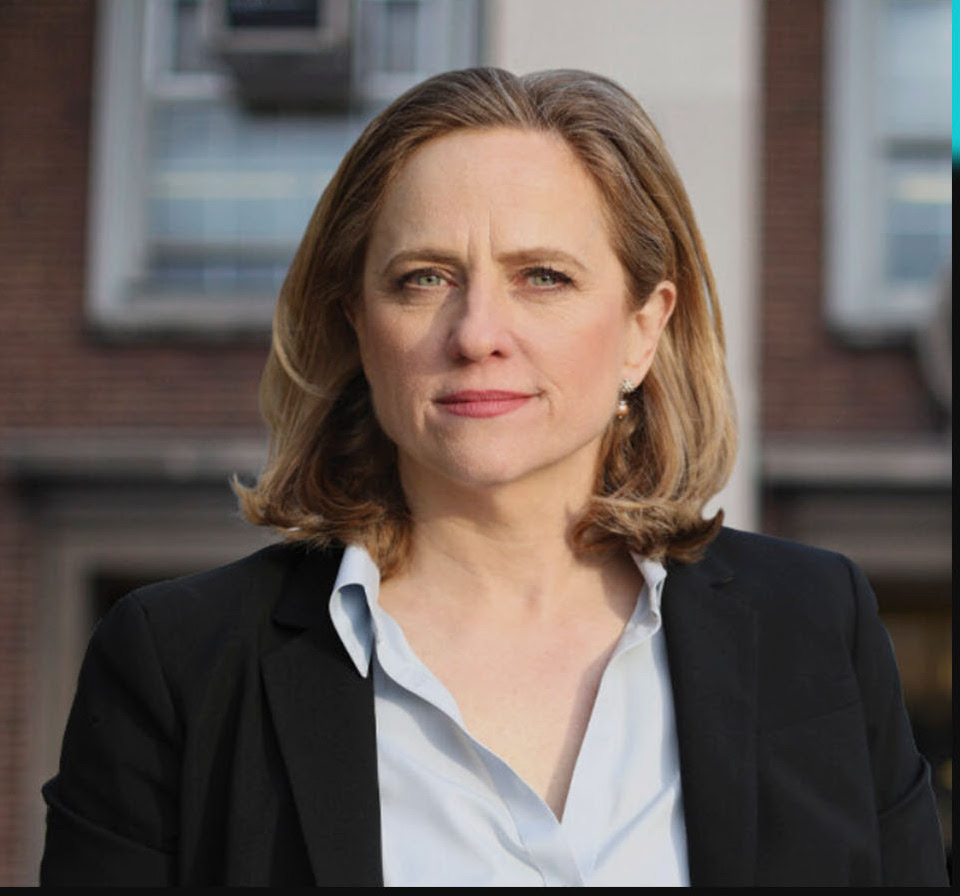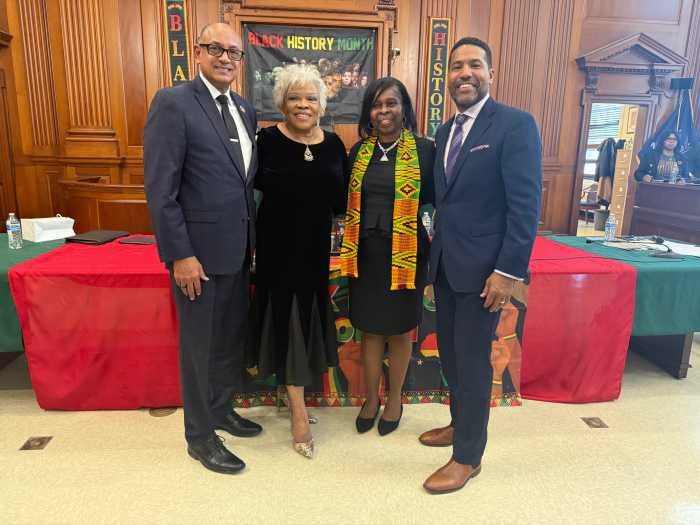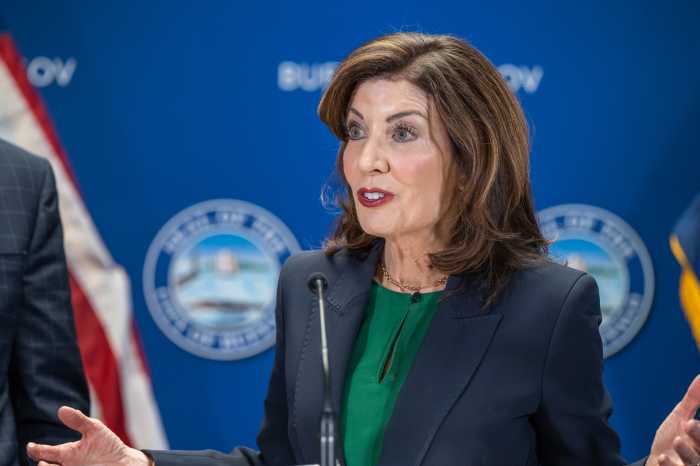Schumer Pushes Bill to Give Rent & Utilities Relief

U.S. Senator Charles Schumer (D-NY) announced yesterday a new push to try and pass COVID-4 legislation in the Senate that would provide immediate relief on rent and utilities coming due.
Schumer said that communities of color and other minority groups have been the hardest hit by the coronavirus pandemic and that many of these individuals are paying more than half their incomes on rent or for housing in the first place.
Schumer said this crisis has made the aforementioned worse while he rallied a push to get the Senate to act on this $100 billion assistance effort.
“The end-of-the-month should not be the end of the financial line for New York’s working families,” said Schumer. “As June 30th nears, we need to put real pressure on Leader McConnell to pass the COVID-4 legislation that would include critical rent relief for New Yorkers who desperately need the help. Our working families, many of color and of other minority groups are in desperate need of this basic assistance so they can continue working, feeding their families and living in this city. This is the least Congress can—and must—do given the challenges New York has uniquely suffered amid this pandemic, and that’s our push today.”
Schumer said the bill, The Emergency Rental Assistance and Rental Market Stabilization Act, would authorize $100 billion for an Emergency Rental Assistance program to help families and individuals pay their rent and utility bills and remain in their homes during and after the COVID-19 crisis. The bill would send funds to communities and states through an existing federal temporary rental assistance program to facilitate the rapid distribution of funds to individuals and families in need.
Weprin Calls for Release of Death Records, Data on Deaths in Correctional Facilities

Assembly Correction Committee Chair David I. Weprin (D-Richmond Hill, Fresh Meadows) and Senate Crime Victims, Crime and Corrections Chair Luis R. Sepúlveda (D-Bronx) last week joined in authoring a letter calling for the New York State Department of Corrections and Community Supervision and New York State Commission on Correction to provide data about the deaths of incarcerated individuals.
The data includes:
1) Statistical data for each person found to have died of Covid-19 or where the virus is suspected of having contributed to the death[1], including a breakdown of this information by race, ethnicity, age at the time of death, location of death (hospital, correctional facility, RHMU, local jail, etc.), the correctional facility housed prior to transfer to a medical unit or regional hospital, and county of commitment.
2) Data on the deaths of all individuals in DOCCS’s custody classified by month from January 2015 to May 2020, including data on deaths by race, ethnicity, age at the time of death, location of death (hospital, correctional facility, RHMU, local jail, etc.), the correctional facility housed prior to transfer to a medical unit or regional hospital, and county of commitment.
3) The methodology used in gathering data related the deaths of individuals in DOCCS’s custody, specifically: how the Department counts an inmate death when an individual in DOCCS’s custody dies in: (a) a correctional facility; (b) in transport to another facility, hospital or other location; (c) an area hospital; and (d) a DOCCS Regional Medical Unit.
Weprin and Sepúlveda furthermore requested that all death reports for people in prison, as compiled by the State Commission on Correction. be delivered to the Executive and Legislature, without significant delay.
“With the lack of testing for COVID – 19 in prisons, having expedient access to both inmate death records and demographic data on the deaths of people in DOCCS custody can help us better understand the spread of COVID – 19 in state prisons and furthermore, with great significance in this particular moment, provide us critical insight into the racial, ethnic, and age disparities of the deaths of incarcerated individuals,” said Weprin. “No life can be erased and I’m glad to join my counterpart in the Senate, Senator Luis Sepulveda, to ensure that no death will go unnoticed in New York.”
De Blasio Announces New Policing Reforms

Mayor Bill de Blasio yesterday announced a series of new reforms to the New York City Police Department to strengthen trust between New Yorkers and officers.
The City will shift funding from the NYPD to youth and social services for communities of color, move vendor enforcement out of the NYPD, and establish a community ambassadors program within the NYPD. The Mayor also announced his support of the new 50-A reform bill introduced in Albany. The Mayor also lifted the citywide curfew effective immediately.
“While we have taken many steps to reform policing in this city, there is clearly more work to do to strengthen trust between officers and the New Yorkers they serve,” said de Blasio. “These will be the first of many steps my Administration will take over the next 18 months to rebuild a fairer City that profoundly addresses injustice and disparity.”
De Blasio also announced his administration will move vendor enforcement out of the NYPD so police can focus on the real drivers of crime instead of administrative infractions. This will further the Administration’s de-escalation agenda by reducing interactions between uniform officers and New Yorkers, particularly immigrant communities and communities of color.
Gianaris Floats Bill Empowering Legislature to Cancel Curfews Without Governor Approval

Senate Deputy Leader Michael Gianaris (D-Astoria, Long Island City, Sunnyside and parts of Woodside, Maspeth, Ridgewood, Woodhaven), the highest-ranking Senator from New York City, announced Friday he intends to introduce a resolution to terminate any Emergency Executive Order issued by Mayor Bill deBlasio continuing a curfew beyond its current expiration on June 8.
While de Blasio ended the curfew yesterday, the legislation would affect possible future curfews.
“Enforcement of this ill-advised curfew has allowed the police to target peaceful New Yorkers whose rights they should be defending, not suppressing,” said Gianaris. “If the Mayor insists on continuing down this dark path, then the legislature must use our powers to stop it.”
New York State Executive Law Section 24(8) specifically grants the legislature authority to terminate such orders by Concurrent Resolution. The legislature will be in session this coming week. Such resolutions do not require the approval of the Governor, according to Gianaris.
DenDekker Gives Contributions from Police Associations to Local Non-Profits

Assembly Member Michael DenDekker (D-Jackson Heights) announced last week he made a $10,000 donation to the local non-profit Elmcor Youth and Adult Activities, Inc. and will also donate $3,000 to Marguerite’s Food Pantry so that contributions from police associations to his campaign will go back into the community.
DenDekker and his campaign accountants have reviewed all contributions to his campaign and identified the total amount of money given by police organizations; that amount will be given to non-profit organizations that benefit the community in Jackson Heights, East Elmhurst, Woodside, and Corona.
“I care deeply about all of my neighbors, and I am tired of all the repeated injustices that have been perpetrated against people of color, especially by police officers,” said DenDekker. “I am committed to making significant changes to law enforcement so that illegal misconduct is properly punished and that the police are held accountable. That includes repealing the 50-A statute that is often used to protect officers that have been accused of misconduct, and creating a mechanism by which police officers can anonymously report misconduct of other officers to an independent commission or to the New York State Attorney General’s Office.”
Katz Announces Creation of Economic Crimes Bureau

Queens District Attorney Melinda Katz announced today the creation of the new Economics Crimes Bureau, which combines the former Organized Crime and Rackets Bureau with components of the former Economic Crimes Bureau.
This new crime-fighting team will investigate and prosecute a broad array of large-scale financial crimes that often fuel dangerous criminal enterprises in our communities. Examples of such crimes include: check-cashing and credit card fraud, fishing and identity theft schemes, auto theft, insurance fraud rings, gambling and loan sharking operations, as well as medical mills.
The creation of this Bureau is preceded by the forming of several other initiatives in recent weeks:
- The Housing and Worker Protection Bureau will focus on investigating and prosecuting crimes related to homeownership, predatory lending, wage theft and workplace safety.
- The Cold Case Unit is the first unit in Queens dedicated entirely to solving old homicides.
- The Conviction Integrity Unit will aggressively re-investigate cases to ensure that no one has been wrongfully convicted in Queens County.
- The Human Trafficking Bureau is the first Bureau in a New York City prosecutor’s office that will exclusively combat both sex trafficking and labor trafficking in Queens County.








